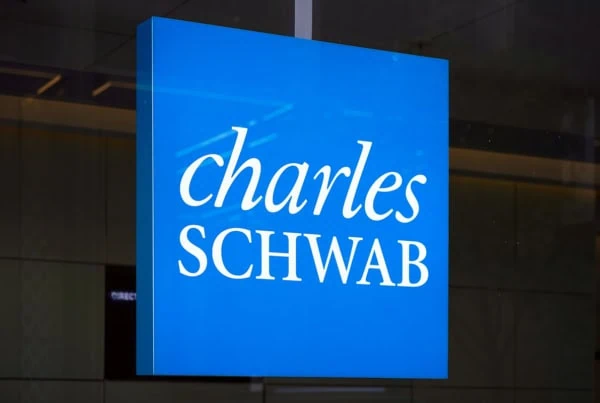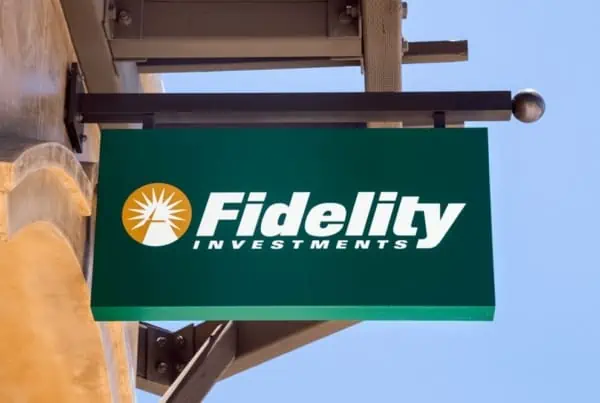Getting in over your head is never a good thing for investors. But luckily, the SEC has your back.
The Securities and Exchange Commission (SEC) protects investors by enforcing the nation’s securities laws, taking action against violators and overseeing securities markets and their participants to help ensure investors get fair and honest treatment.
One major way the SEC protects investors is by restricting access to certain types of high-risk, complex investments. These aren’t your standard stocks and bonds available to run-of-the-mill retail investors on public markets. Rather, they are ventures in lightly regulated, often opaque assets. To help keep investors’ heads above water, the SEC makes these ventures available only to certain types of investors. And today, we’re going to look at two of those: accredited investors and sophisticated investors.
The SEC requires robust disclosures for any securities offered on a public market. The rules vary based on the specific security, but all work to guard investors from being manipulated or preyed upon.
Complying with these rules can prove time-consuming, expensive and onerous for institutions that want to raise capital in public markets. So instead, some companies choose to avoid these strict rules and regulatory oversight altogether.
Through making private offerings to a much narrower group of investors—namely, sophisticated or accredited investors—some financial products get to meet a lower bar for standards of oversight and disclosure. Having to jump through fewer regulatory hoops can make a company more nimble, and its management can pump the money they save back into the business, resulting in potentially greater gains for investors.
Of course, the greater potential rewards come with greater risks, and that’s why the SEC requires anyone investing in these ventures to be well-versed in assessing risk and have a strong understanding of financial and business matters.
Let’s delve into what exactly classifies an investor as “sophisticated,” how that is different from being an accredited investor, and what different levels of investment opportunities each type of investor is allowed to pursue.
Related: Best Investments for Accredited Investors
Investment Opportunities for Accredited and Sophisticated Investors—Our Top Picks
|
Primary Rating:
4.4
|
Primary Rating:
4.3
|
Primary Rating:
4.2
|
Primary Rating:
4.2
|
|
Minimum Investment: $50,000
|
Minimum Investment: $1,000.50.
|
Minimum Investment: $5,000
|
Minimum Investment: $10,000
|
What Is a Sophisticated Investor?
Sophisticated investors are investors who have substantial financial expertise. SEC Rule 506 of Regulation D states these investors must have sufficient knowledge and financial experience to be “capable of evaluating the merits and risks of the prospective investment.”
This is a loose definition and there are no formal qualifications, but it essentially means investors who have proved their ability to understand what they are getting themselves into with an investment are sophisticated investors.
These people might include bankers, accountants, business owners, state-registered investment advisors, and more. Also, they are almost always high-net worth individuals—although there are no specific financial thresholds to become a sophisticated investor.
A sophisticated investor can sometimes partake in pre-IPOs, private equity deals, private stock offerings, and more.
You can also be a sophisticated investor if you are a qualified institutional buyer who owns or manages, on a discretionary basis, a minimum of $100 million worth of securities.
Note that this is the definition for sophisticated investors in the United States—other countries have different definitions.
Related: 15 Best Investment Apps and Platforms [Free + Paid]
How Do You Become a Sophisticated Investor?
There is no certification test to pass to qualify as a sophisticated investor, but you still must be able to show you have business and financial expertise. Be ready to provide details about your track record as an investor, including an idea of your holdings and how long you’ve been in the market.
Your education or job also may qualify you. For example, if you’re an accountant or registered investment advisor, that shows you have financial knowledge.
The higher your net worth, the more likely you will be considered a sophisticated investor. While there is no specific income threshold, if you’re already successful with traditional investments and have amassed a lot of money through them, it shows you’re aware of the risk/reward balance of investments.
Plus, one bad investment is unlikely to bankrupt you.
Investors who meet any of the requirements to qualify as accredited investors (explained in more detail below) need not worry about becoming a sophisticated investor, because they can partake in all the investments sophisticated investors can, and more.
Related: 10 Investments that Earn a Great Return [10% or More]
What Is an Accredited Investor?
An accredited investor can buy securities subject to even less oversight and fewer regulatory requirements than a sophisticated investor.
Private offerings can be available to an unlimited number of accredited investors, but only up to 35 sophisticated investors.
While the definition of a sophisticated investor is vague and doesn’t have a formal classification, there are clear requirements to qualify as accredited investors (explained below).
Related: 6 Best Stock Recommendation Services [Stock Tips + Picks]
How Do You Become an Accredited Investor?
You must meet one of the following requirements:
- Net Worth: Have an individual or joint net worth over $1 million, excluding the value of your primary residence.
- Individual Income: Earn over $200,000 annually as an individual for the past two years and expect to make the same or more during the current year.
- Joint Income: Have a joint income with your spouse or spousal equivalent of over $300,000 for the past two years and expect to make at least the same amount during the current year.
- Professional Certifications: Hold a professional certification, designation, or credential as an investment professional from an accredited educational institution the SEC states qualifies. This includes a Series 7, Series 82, or Series 65 license.
- Knowledgeable Employees: Be an executive officer, trustee, director, or advisory board member for a private fund or an employee of the private fund who has been working on the fund’s investment activities for a minimum of one year.
For a long time, net worth or high income were the only ways for people to qualify as accredited investors. Finally, in 2020, the SEC updated the accredited investor definition to include individuals who show professional financial knowledge and experience.
This change somewhat blurs the line between a sophisticated investor and an accredited investor.
Related: 15 Best Investing Research & Stock Analysis Websites
Sophisticated Investors vs. Accredited Investors: FAQs
What are the four types of investors?
1. Non-accredited investors
Most investors are non-accredited, meaning they don’t have the income, assets or professional qualifications to satisfy Rule 501 of Regulation D from the SEC’s accredited investor qualifications. They also haven’t demonstrated the financial expertise or experience needed to count as a sophisticated investor.
These investors are limited to buying traditional investments, such as being equity owners of public companies, but not some riskier investments.
The Investment Company Act of 1940 regulates investments such as mutual funds, open- and closed-end funds, private equity funds, hedge funds, and holding companies, and protects non-accredited investors.
Non-accredited investors have fewer investment opportunities than sophisticated and accredited investors.
2. Sophisticated investors
The next level up in the investing food chain, sophisticated investors are non-accredited, but they have a great deal of knowledge about business and finance. These investors qualify to buy into more investment types than other non-accredited investors, but not as many as accredited investors.
3. Accredited investors
Accredited investors are a step above sophisticated investors. Beyond having financial knowledge, to be an accredited investor, the SEC demands that you either “show me the money” or prove your qualifications through your profession. People can determine whether they’re accredited investors based on whether they meet one of certain standards set forth by the SEC:
An accredited investor must meet either high-income requirements, have a minimum net worth of $1 million, earn certain professional certifications, or hold certain jobs for private funds. (These criteria are explained in more detail above.)
These individuals are permitted to trade securities not registered with the Securities and Exchange Commission.
4. Qualified purchasers
At the pinnacle of the investing pyramid are qualified purchasers. They have access to the broadest range of investment opportunities out there. In a nutshell, qualified purchasers are people or family businesses that hold investment portfolios of $5 million or more.
What is Rule 501 of Regulation D?
The SEC’s Regulation D determines how companies issuing certain types of private placements can raise capital without having to register the securities with the SEC.
Rule 501 of Regulation D defines who qualifies as an accredited investor.
What is Rule 506(b) of Regulation D?
SEC Rule 506(b) of Regulation D allows companies conducting offerings of unregistered securities to raise an unlimited amount of capital and by selling to an unlimited number of accredited investors as long as there is no advertising or general solicitation to market the securities.
It also states that unregistered securities can only be sold to a maximum of 35 non-accredited investors—and those must be sophisticated investors.
If non-accredited investors are included in the offering, the company has to disclose additional financial information to investors and be available to answer prospective purchasers’ questions.
Related:













![9 Best Schwab ETFs to Buy [Build Your Core for Cheap] 25 best schwab etfs to buy](https://youngandtheinvested.com/wp-content/uploads/best-schwab-etfs-to-buy-600x403.webp)

